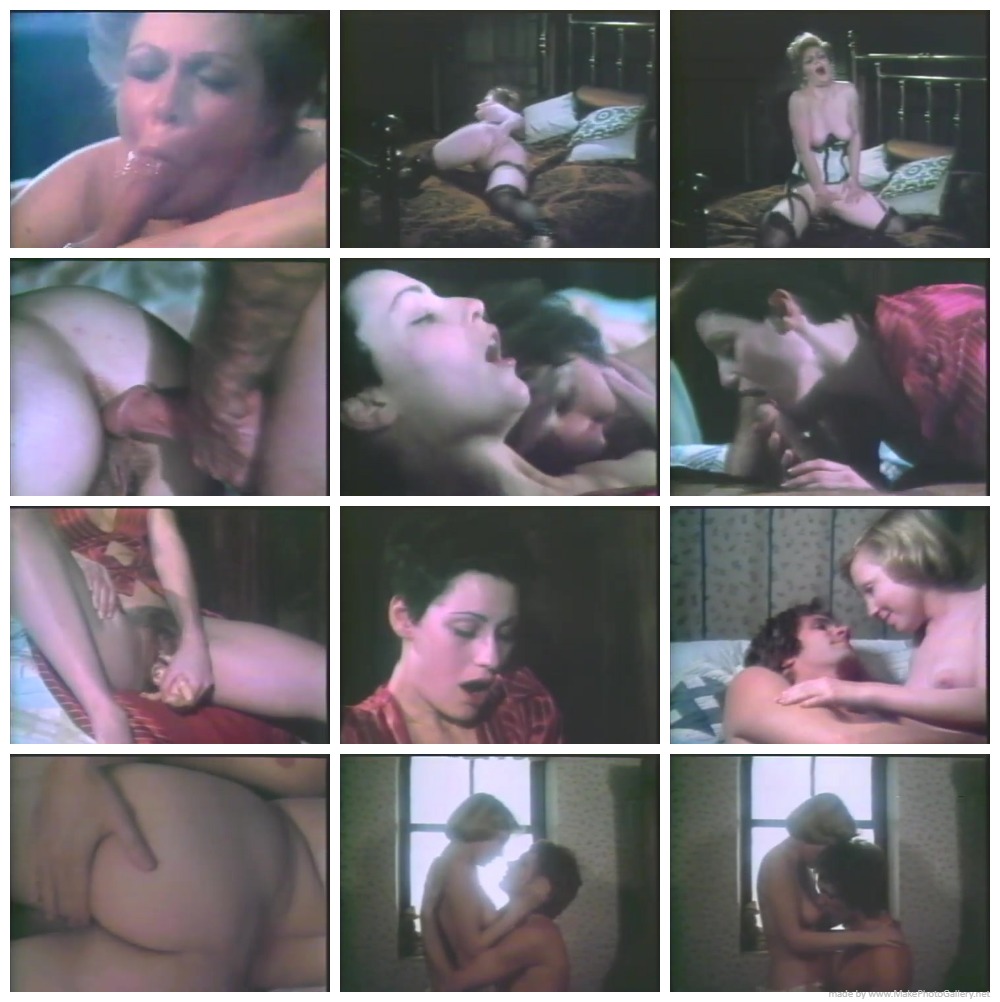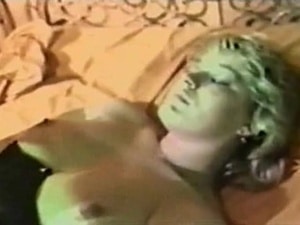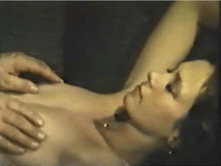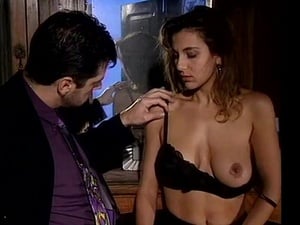
Set in an isolated farm house in the dead of winter, middle aged Aggie (Deborah Ashira) lives with her wheelchair-bound companion, Richard. Richard is presumably her husband and Aggie is trying to remember how they met. Each of her three “memories” are played out in pseudo flashbacks as Aggie attempts to re-create what we slowly realize is an attempt to conceal to herself the horrifying truth of her life and relationship with Richard.
Perhaps Damiano’s most introspective film, the director described the work as what he felt would have happened to Miss Jones (from the Devil in Miss Jones), had she not committed suicide. MEMORIES is a relentlessly depressing work, punctuated by exquisite camera work by genre cinematographer João Fernandes and a haunting original score by Rupert Holmes. Damiano’s hatred of Catholic conservationism is more apparent in this film than any other of his career.
“”Nothing was missing from Aggie’s life… except Aggie.”
So read the tagline to this strange seeming film atop a poster covered with reviews credited to ABC, Playboy, Variety, and more. “The new film from Gerard Damiano!” and “Due to the shocking nature of this film’s conclusion, no one will be admitted into the theatre during the final 10 minutes.” Coming off more as a surreal seeming horror film than a lowly skin-flick, Memories Within Miss Aggie appeared an enigma. What possibly could it be?
Opening with the image of a haggard looking middle aged woman cleaning the floor, then emptying her bucket of dirty water onto some virgin snow, which momentarily turns into blood, it is clear that no sex-film genre expectations are to be adhered to in this film. As the story begins to unfold, we find out that the woman we have been following is Aggie, a miserable soul, living in an isolated and wintry country house with a wheelchair bound companion named Richard.
Richard, presumable her husband or lover, sits, saying almost nothing as Aggie painstakingly tries to remember how they met. As Aggie tells Richard each of her “memories,” we become aware of the different, and increasingly sinister sides of Aggie’s personality, until we finally learn the horrifying truth of their first meeting.
Written by Ron Wertheim, who also co-scripted the incomparably brilliant Through the Looking Glass, Aggie is a tense psychological study of loneliness and isolation, set against a forbidding backdrop of rural depression and religious obsession. Described by Damiano as his re-envisioning of what Justine Jones life would have been had she not committed suicide, Aggie is easily Damiano’s most bleak and pessimistic work.
João Fernandes murky long shots and Rupert Holmes’ outstanding score, which mixes bars from Amazing Grace with his own chilling compositions, breathtakingly elevate the atmosphere of the film. Kim Pope and Mary Stuart, both of whom play younger versions of Aggie, are tremendous in their small, yet extremely powerful roles. Deborah Ashira and Patrick L. Farrelly who play the present day Aggie and Richard are both powerful and believable, yet posses a certain cartoonishness that makes the film’s final revelations all the more believable.
Damiano’s only film to play at Cannes, Aggie is quite possibly his finest effort, and easily his most thought provoking.”









